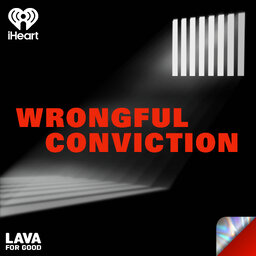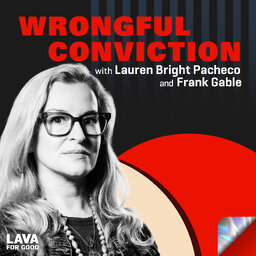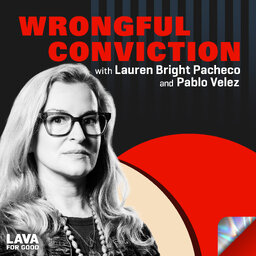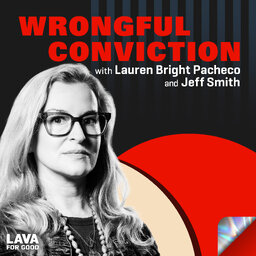#080 Jason Flom with Crystal Weimer - RE-RELEASE
Curtis Haith was beaten to death and shot outside of his home in western Pennsylvania. Police determined that the evening before Haith had attended a party in Uniontown, PA. Crystal Weimer, whose sisters hosted the party, and her cousin had driven Haith home and returned directly to the party. Crystal became the focus of the investigation after an ex-boyfriend told authorities she confessed. The charges were dropped when he recanted, but police re-filed the charges in 2004 with the use of statements given by Joseph Stenger, who pleaded guilty to conspiracy of homicide of Haith while he was serving time for unrelated robbery charges. Stenger testified that Crystal had an earlier physical altercation with Haith, and she enlisted Stenger and two unidentified black men to return to Haith’s house after where she lured him outside, and they beat him to death and shot him in the face. At her trial in 2006, the only physical evidence that directly tied Crystal to the crime scene was an alleged bite mark on the victim’s arm. Expert odontologist Dr. Constantine Karazulas told the jury that a mark on the victim’s hand was a bite mark made minutes before he died, and that Crystal is the one who bit him. During closing argument, the prosecution told the jury that the jailhouse informants who testified against her at the trial had not asked for any leniency on their own cases in return for their testimony. Crystal Weimer was convicted of third-degree murder and conspiracy to commit homicide and sentenced to 15 to 30 years in prison. She continued to fight for her innocence, acting as her own lawyer and filing motions for post-conviction relief, but all were denied until a federal petition for a writ of habeas corpus was filed on her behalf. In December 2014, Joseph Stenger ultimately recanted all of his statements and admitted that prosecutors dropped more serious charges against him in exchange for his testimony against Crystal. In early 2015, Dr. Constantine Karazulas, that same expert declared his own trial testimony "junk science" and "invalid." In February 2015, Crystal, represented pro bono by the Pennsylvania Innocence Project and the firm of Jones Day, filed a motion for a new trial based on the discredited bite mark evidence and the recantations of key witnesses. Her lawyers had also discovered that the prosecution had failed to disclose to Crystal’s trial counsel that the jailhouse informants had written letters to the prosecution requesting favorable treatment, which showed that the informants had testified falsely at trial when they denied they sought deals for their testimony. A new trial was ordered on October 1st, 2015, and Crystal Weimer was released the same day on bond after serving 11 years in prison. She was forced to wear an electronic ankle bracelet for another nine months until the judge dismissed the charges with prejudice, and she was finally exonerated in June 2016. Crystal is joined by one of her attorneys from the Pennsylvania Innocence Project, Nilam Sanghvi, in this episode.
https://www.wrongfulconvictionpodcast.com/with-jason-flom
Wrongful Conviction is a production of Lava For Good™ Podcasts in association with Signal Co. No1.
 Wrongful Conviction
Wrongful Conviction


